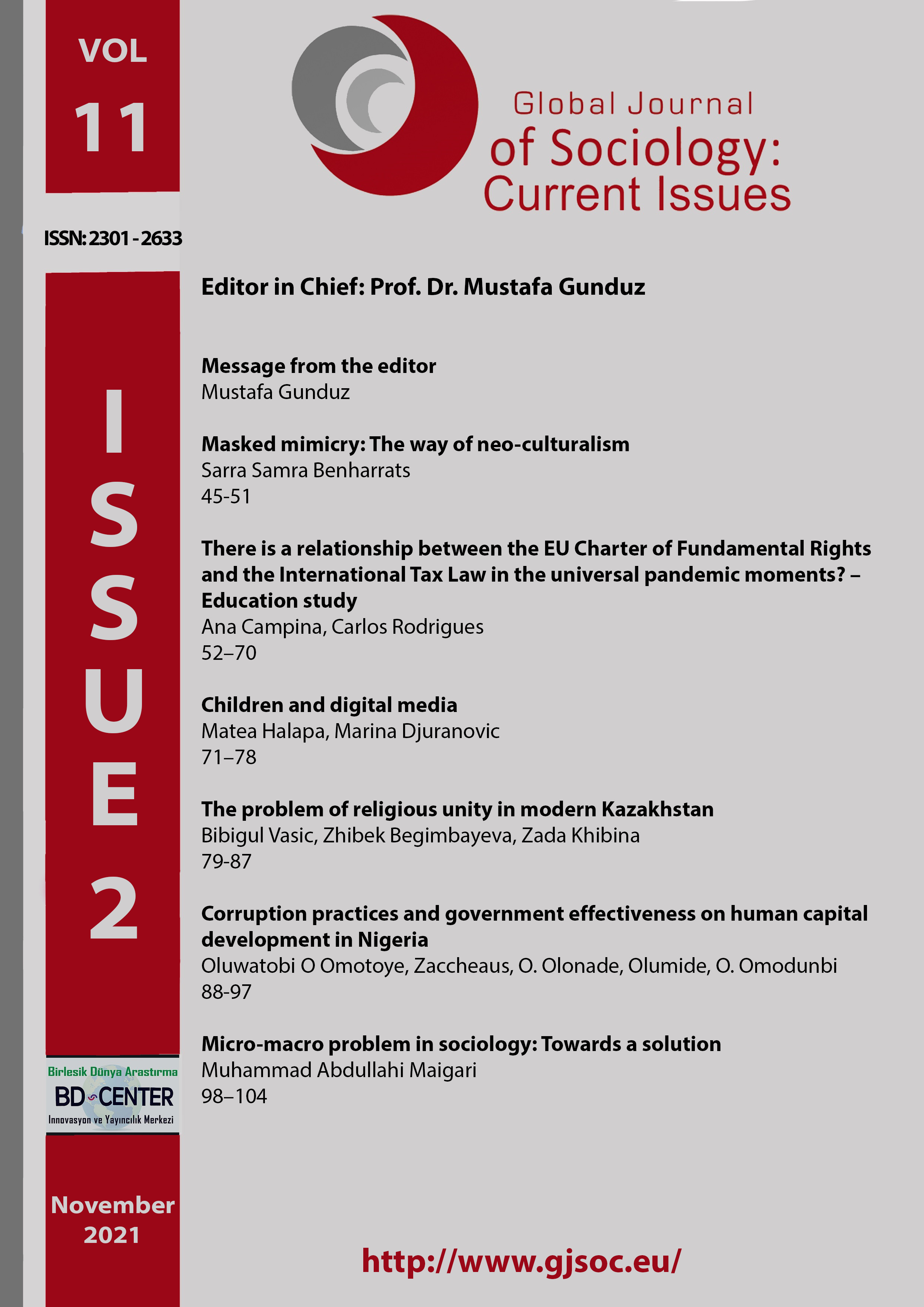Corruption practices and government effectiveness on human capital development in Nigeria
Main Article Content
Abstract
The study assessed the impact of corruption practices and government effectiveness (GE) on human capital development (HCD) in Nigeria between the years 2003 and 2020, Panel data from 2003 to 2020 were obtained from the database of United Nations Development Programme, World Development Indicators and CIP and were analysed using the ordinary least square method which is suitable for the dataset. The study found that corruption has a significant relationship with HCD in Nigeria while the relationship between GE and HCD is not significant. The research implication is that the persistent problem of slow and sometimes stagnant HCD and growth in Nigeria can be reversed by improving GE and by reducing corrupt practices in the country. The paper concluded that corruption practices have a very strong influence on HCD in Nigeria, while the relationship between GE and HCD is insignificant. It was recommended that Nigeria should institute stiffer punishments for offenses bothering on corruption practices.
Keywords: Corruption, human capital, development, government effectiveness, Nigeria.
Downloads
Article Details

This work is licensed under a Creative Commons Attribution 4.0 International License.
Authors who publish with this journal agree to the following terms:- Authors retain copyright and grant the journal right of first publication with the work simultaneously licensed under a Creative Commons Attribution License that allows others to share the work with an acknowledgement of the work's authorship and initial publication in this journal.
- Authors are able to enter into separate, additional contractual arrangements for the non-exclusive distribution of the journal's published version of the work (e.g., post it to an institutional repository or publish it in a book), with an acknowledgement of its initial publication in this journal.
- Authors are permitted and encouraged to post their work online (e.g., in institutional repositories or on their website) prior to and during the submission process, as it can lead to productive exchanges, as well as earlier and greater citation of published work (See The Effect of Open Access).
